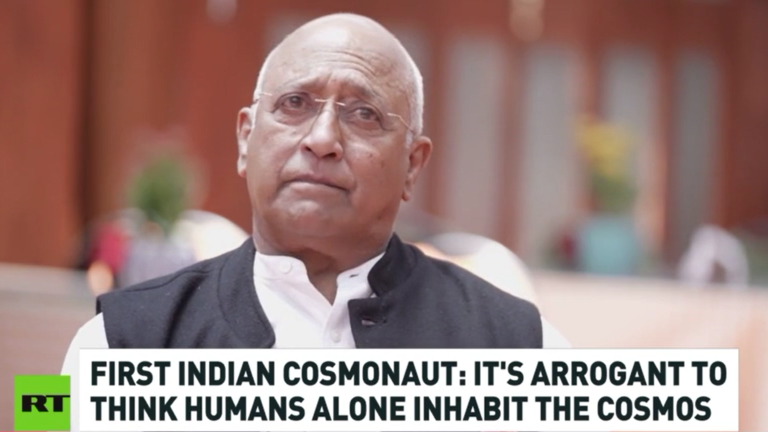
Traveling to space aboard a Soviet rocket made Rakesh Sharma realize the importance of caring for our own planet, he told RT in a new interview. While Sharma said that he looks forward to making contact with extraterrestrial life, he added that a certain kind of “alien” already lives on Earth.
Sharma was a fighter pilot in the Indian Air Force when he was selected in 1982 to train with the USSR’s Interkosmos space program. Two years later he became the first Indian citizen to enter space when he blasted off from Baikonur Cosmodrome aboard a Soyuz rocket bound for the Salyut 7 space station.
Being in space “gives you a wider perspective of your own existence,” Sharma told RT in an interview broadcast on Tuesday. “You return…a lot more mindful about the fact that there is no other place which is as comfortable as planet Earth, and therefore we really need to look after it and take care of [its] resources and use them frugally.”
Sharma is not the only space traveler to return with a newfound perspective on Earth’s fragility. American astronaut Edgar MItchell famously remarked that gazing down at our planet made him
“want to grab a politician by the scruff of the neck and drag him a quarter of a million miles out and say, ‘Look at that, you son of a b***h!”
Like several other Western astronauts, Mitchell returned to Earth a believer in alien life. Sharma, however, sees things differently.
“I think we are aliens living on this planet,” he said. “There are people who are really greedy, who don’t bother about the environment, people who don’t share.” The idea of neglecting mankind’s “common destiny” and sowing “conflict for profit,” he explained, should be viewed as “alien.”
Sharma also believes that there is life in outer space. “I think it’s typically arrogant of us humans to think we are the only intelligent life in this vast universe,” he said. “It’s just that our sense of distance is limited…and science hasn’t yet opened all the doors. There has to be alien life more evolved than us, and I look forward to that kind of contact.”

